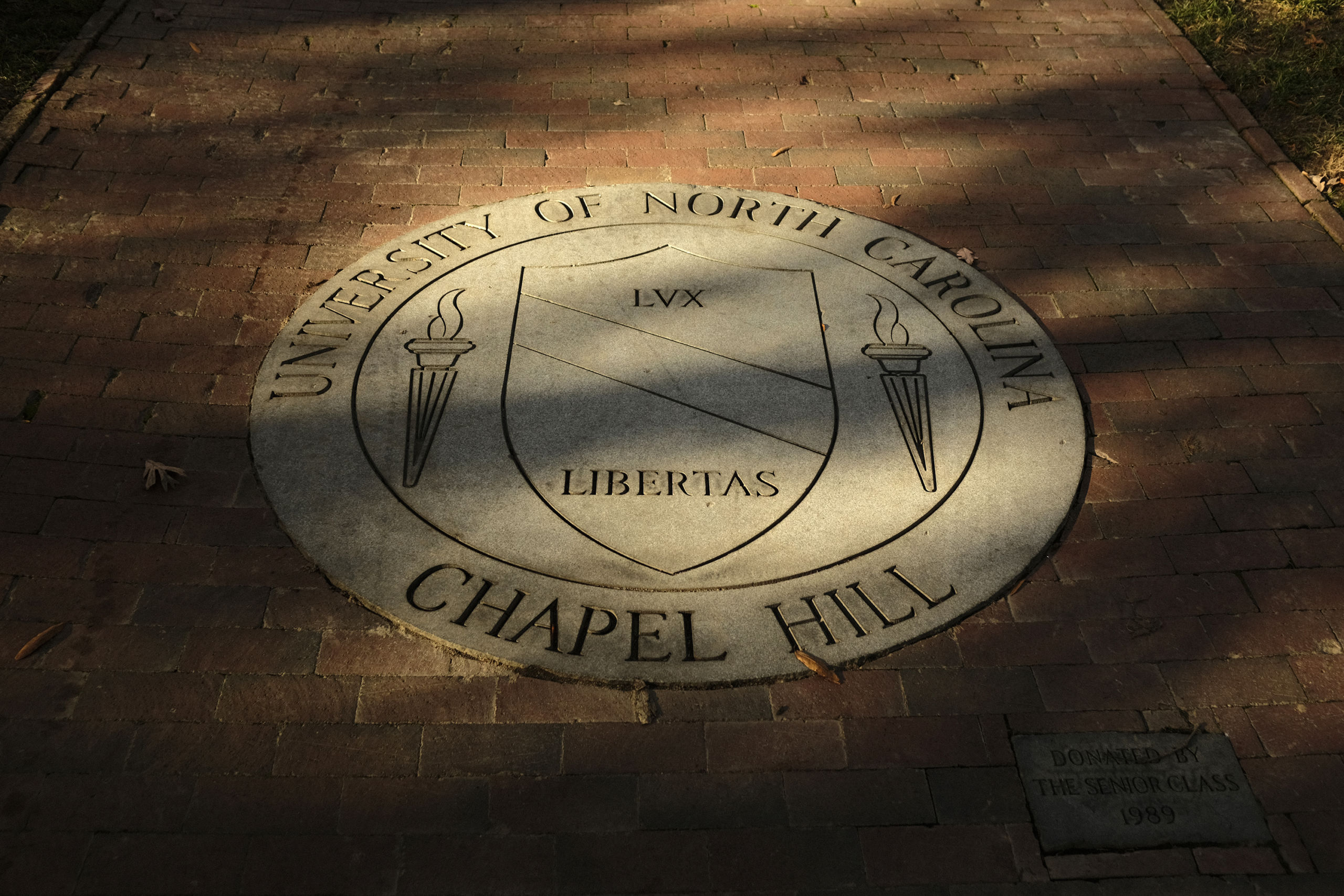- Membership
- Perks and Discounts
- Things To Do
- Resources
- News
- About
- Shop
Related Content
UNC Announces More Security Measures for Commencement
May 8, 2024
University officials released this week measures to tighten security for this weekend’s Commencement, including requiring...
Read MoreCampus Y Closed Indefinitely, Students Issue Demands
May 3, 2024
The Campus Y was closed this week by University leadership, who say the closure was...
Read MoreUniversity Releases Findings of Aug. 28 Shooting Aftermath
Dec. 7, 2023
Enhancing the Alert Carolina notification system, improving preparedness and training, and addressing perceived problems in...
Read More-
2024
-
2023
-
2022
-
2021
-
2020
-
2019
-
2018
-
2017
-
2016
-
2015
-
2014
-
2013
-
2012
-
2011
-
2010
-
2009
-
2008
-
2007
-
2006
-
2005
-
2004
- Academics and Athletics
- Admissions
- Alumni Profiles
- Alumni Recognition
- Around Town
- Arts
- Books
- Campus Profile
- Campus Safety
- Carolina Alumni Awards
- Carolina Alumni Leadership
- Carolina Alumni Programs and Outreach
- Carolina Alumni Reunions
- Carolina Alumni Review
- Celebrations
- Championships
- College and Costs
- Commencement
- Coronavirus
- Discovery
- Extracurricular
- Faculty
- Faculty Awards
- For the People
- Go Heels
- Greek Life
- Hark the Sounds
- Higher Education
- Homecoming
- In Class
- In Memoriam
- Innovation and Technology
- Issues
- Object Lesson
- On View
- Our Treescape
- Philanthropy
- Podcast
- Public Service
- Race and Reckoning
- Research
- Sexual Assault
- Silent Sam
- Sports
- Structures
- Student Achievement
- Students
- Timelines
- Tuition and Financial Aid
- UNC Libraries
- UNC’s History
- Undergraduate Spotlight
- University Achievements
- University Awards
- University Budget Issues
- University Development
- University Leadership
- University News
- University Rankings
- What We Do
- Who We Are
- Young Alumni
- Yours at Carolina
UNC Releases Sexual Assault Records
Posted on Aug. 8, 2020
The records show 15 people were found in violation of University policy on assault since 2007. (Grant Halverson ’93)
The University has released records of its disposition of 15 sexual assault cases since 2007 in response to a N.C. Supreme Court ruling in a media lawsuit that sought the records.
The records show 15 people were found in violation of University policy on assault. Two of them were expelled and the others suspended, among other sanctions.
Of the violations, 10 were sexual assault or sexual violence, four were sexual misconduct and one was deliberate touching of another’s sexual parts without consent.
Among the other sanctions given in the 15 cases were assault education requirements, no contact orders, community service and campus housing restrictions. One person was banned from the campus in addition to expulsion.
The Daily Tar Heel quoted its lawyer in the case, Hugh Stevens’65 (’68 JD), as saying, “This is everything that the University identified, and that the court identified, as being responsive to the Supreme court’s opinion.” The suit, filed in 2016, requested records from 2007 to the present.
The University had maintained that releasing names would discourage victims and witnesses from coming forward.
Four news organizations — The Daily Tar Heel, The Charlotte Observer, The Herald-Sun of Durham and WRAL’s Capitol Broadcasting — filed suit in 2016 after UNC refused public records requests for the names, offenses and punishments for students found responsible for sexual misconduct.
In a 4-3 vote, the court said UNC must release certain records that it believed were protected by the federal Family Educational Rights and Privacy Act. UNC “must comply with the North Carolina Public Records Act and allow plaintiffs to have access to the name of the student, the violation committed, and any sanction imposed by the University on that student in response to plaintiffs’ records request,” the court ruled.
The ruling included: “It is important to emphasize that this Court lacks the authority to determine whether the release of the records sought by plaintiffs is wise or unwise as a matter of public policy. Congress has expressly made that determination by conferring discretion upon universities regarding the disclosure of such information.”
The DTH reported that UNC, through its vice chancellor for communications, Joel Curran ’86, said UNC would seek a review from the U.S. Supreme Court.
“As a practical matter, it wouldn’t change anything now,” Stevens told the newspaper. “But it would have huge ramifications for the future.”
© 2024 Carolina Alumni
